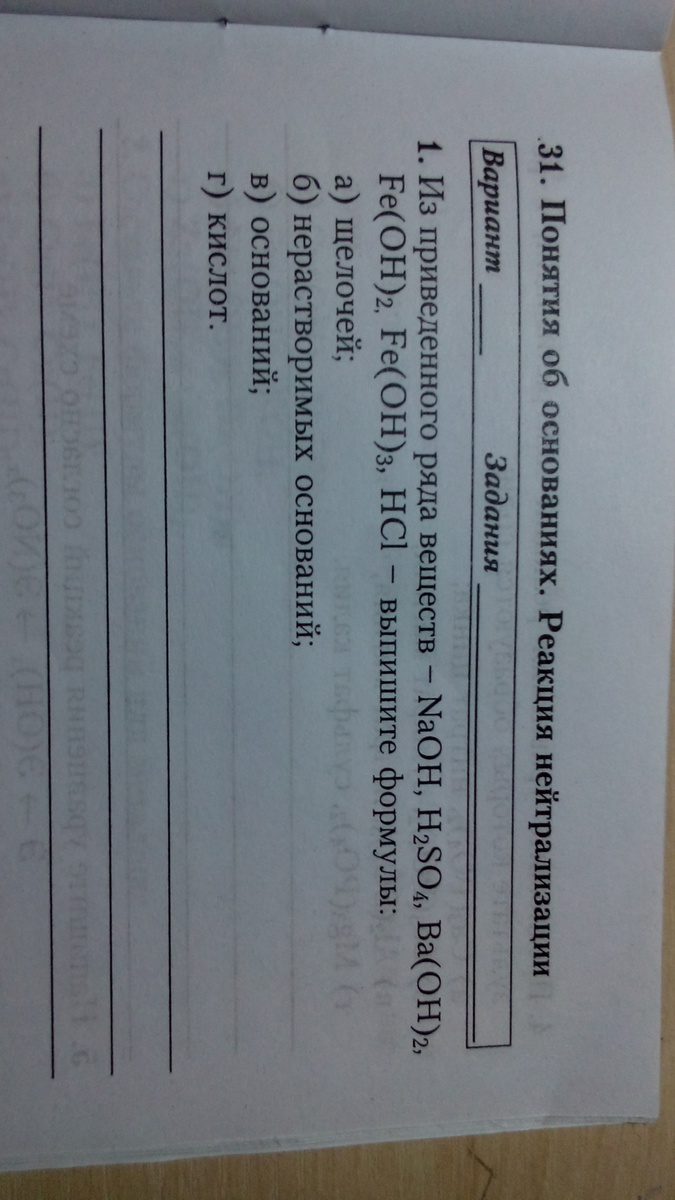Предмет: Химия,
автор: Школьник66
тема основания помогите
Приложения:

Ответы
Автор ответа:
1
а) NaOH, Ba(OH)2
б)Fe(OH)2
в)Fe(OH)3
г)H2SO4, HCl
Вроде так
б)Fe(OH)2
в)Fe(OH)3
г)H2SO4, HCl
Вроде так
Похожие вопросы
Предмет: Русский язык,
автор: алиса673
Предмет: Русский язык,
автор: Pipidastet
Предмет: Английский язык,
автор: Аноним
Предмет: Алгебра,
автор: Uffb5